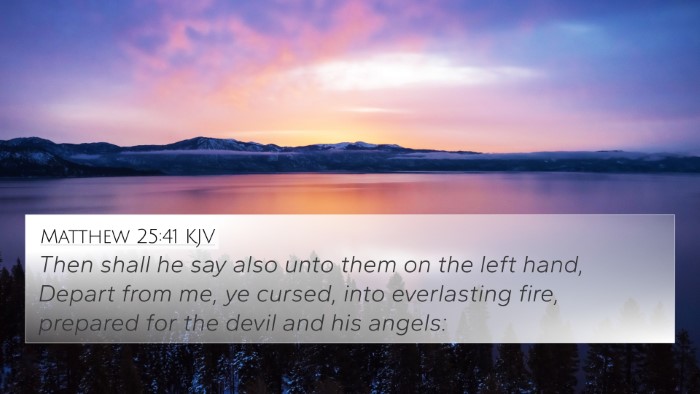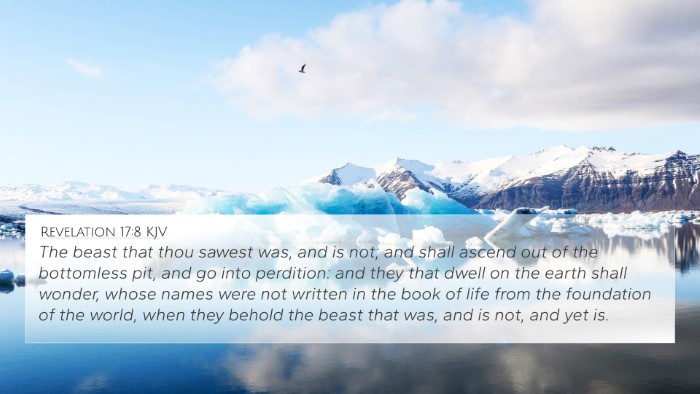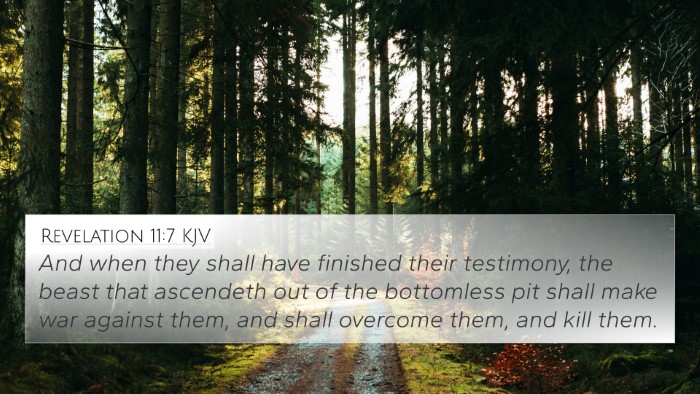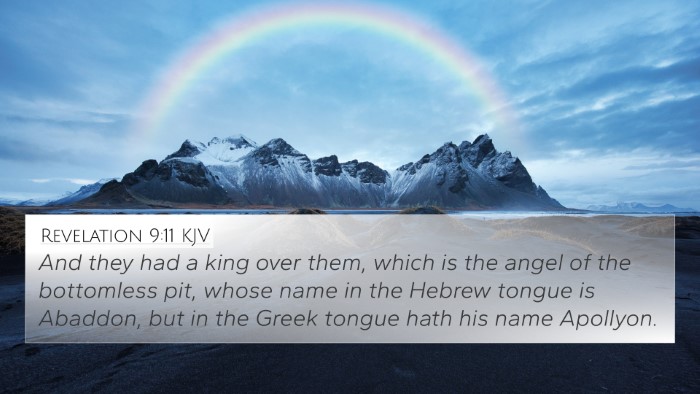Understanding Luke 8:31
Luke 8:31 states, "And they besought him that he would not command them to go out into the deep." This verse occurs within the narrative of the demoniac who encounters Jesus. The plea of the demons reflects their fear and recognition of Jesus' divine authority. In exploring this verse, we delve into a significant moment that showcases the power of Christ over evil forces, highlighting themes of fear, submission, and the supernatural's relationship with the divine.
Commentary Insights
-
Matthew Henry's Commentary:
Matthew Henry emphasizes the recognition of Christ's power by the demons. Their request not to be sent into the abyss ("the deep") signifies their awareness of judgment and punishment. Henry suggests this illustrates a key theme in scripture: the authority of Jesus over all spiritual realms, including evil spirits. The demons know their fate lies in Christ’s hands, highlighting their desperation and the ultimate victory of good over evil.
-
Albert Barnes' Notes:
Albert Barnes aligns with Henry's interpretation while providing deeper insights into Jewish eschatology. He explains that "the deep" often refers to the place of the dead or abyss, a place associated with eternal punishment. The demons' plea indicates their fear of punishment. This corresponds to the larger theme of spiritual warfare in the Gospel, underscoring the confrontations between the Kingdom of God and oppressive spiritual forces.
-
Adam Clarke's Commentary:
Adam Clarke details the emotional makeup of the demons, pointing out that their request highlights their awareness of their destined outcome. Clarke connects this with other scriptural references to the fate of evil spirits, adding that it exposes the broader narrative of redemption and judgment present throughout the Bible. He notes the implications of their plea, offering readers insights into the nature of Christ's ministry on earth and the significance of his authoritative word.
Cross-References to Luke 8:31
-
Revelation 20:10: This verse speaks of the ultimate fate of the devil and his followers, paralleling the demons' fears in Luke.
-
Matthew 25:41: Here, Jesus refers to hell as prepared for the devil and his angels, connecting themes of eternal punishment and authority.
-
Mark 5:12-13: In Mark's account of the same event, the demons request to be sent into pigs, highlighting their willingness to escape to any other presence rather than facing their fate.
-
Luke 8:28: Earlier in the same chapter, the acknowledgment of Jesus' authority over the spirits sets the stage for their request in verse 31.
-
James 2:19: The verse states that demons believe and shudder, thereby demonstrating their acknowledgment of God's power akin to what we see in Luke 8:31.
-
2 Peter 2:4: This speaks of the angels who sinned and were cast into chains, which aligns with the concept of divine judgment faced by the demons.
-
Romans 8:38-39: While contrasting in nature, this verse emphasizes the assurance of God's love, providing a backdrop for understanding the plight of those who reject such love.
-
1 John 3:8: This verse highlights Jesus' mission to destroy the works of the devil, amplifying the battle between good and evil.
-
Colossians 2:15: Speaking of Christ's triumph over principality and powers, this supports the premise of Jesus' authority over demons.
-
Luke 4:41: This shows instances where the demons acknowledged Jesus, reaffirming the theme of recognition throughout the Gospels.
Thematic Connections and Interpretations
The plea of the demons in Luke 8:31 establishes several thematic connections across the Bible. It delineates the nature of spiritual beings and their understanding of God's authority and judgment. By employing cross-referencing scripture, one can visualize a comprehensive tapestry of biblical narratives concerning good versus evil, the identity of Christ, and the eschatological destiny of beings within the spiritual realm.
Theologically, this verse invites readers to consider the implications of spiritual accountability, the nature of fear in the face of divine authority, and the ongoing cosmic battle portrayed throughout scripture. The evocation of cross-references—such as the acknowledgment of Jesus' authority within other Gospel accounts—allows for an enriched understanding of Biblical texts, demonstrating the interconnectedness of God's Word and the unity of its themes.
Tools for Bible Cross-Referencing
To delve deeper into biblical cross-references, various tools are available, including:
- Bible concordances to locate key terms and themes
- Bible cross-reference guides for thematic studies
- Online databases for cross-referencing Bible verses
- Bible software programs that include comprehensive cross-reference materials
Conclusion
Luke 8:31 presents an essential segment of scripture that contextualizes the authority of Christ amidst spiritual powers. Through careful interpretation using public domain commentaries and by employing tools for biblical cross-referencing, one can unlock a deeper understanding of this and its related verses. This integrated approach enriches the reader's engagement with scripture and fosters a broader understanding of its theological implications.














